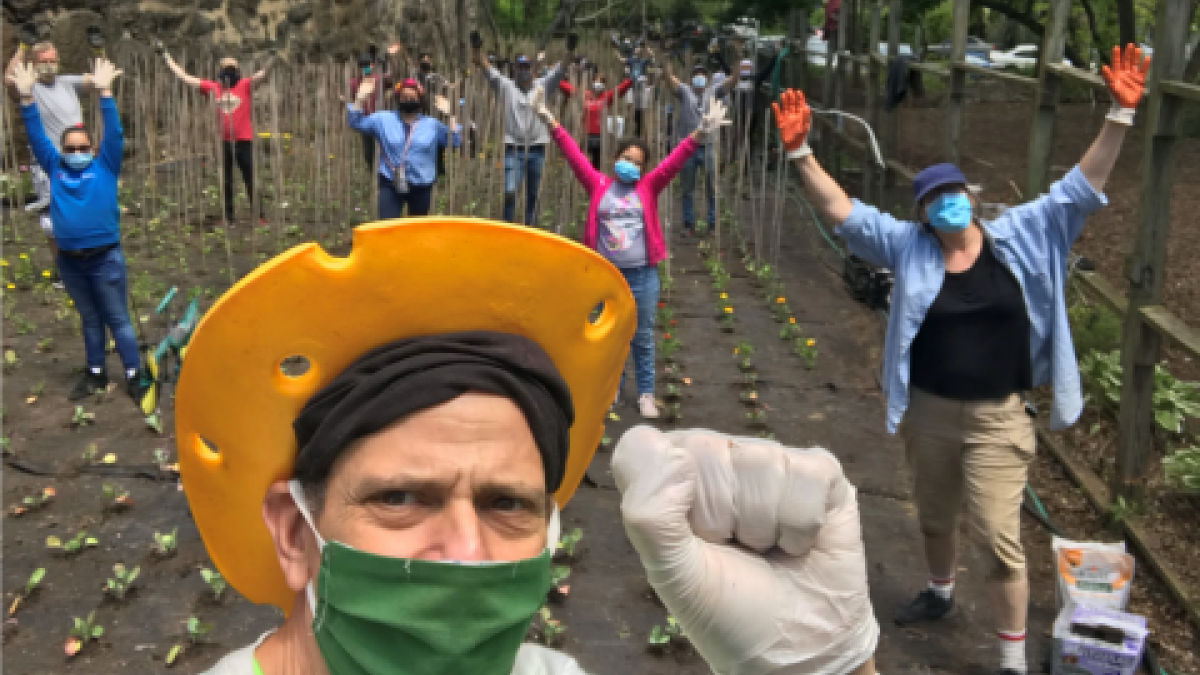Image

Date
Category
This essay by Judy Braus, Executive Director of the North American Association for Environmental Education, was originally published by The National Council for Science and the Environment.
The word pandemic comes from Greek and means “all people.” It’s an epidemic on steroids, spreading quickly across a wide geographic range and affecting a significant portion of the population. The novel coronavirus is fast-moving, highly contagious, and deadly. It has not only killed thousands of people, but has brought many pre-pandemic issues into sharper focus: systemic inequities, food insecurity, serious underlying health disparities, and innumerable degradations of our planet’s health. Behind so many of these ills lie uninformed choices by governments and individuals. And behind these failures too often lies a limited understanding about how the world works.
COVID-19 shows what happens when we don’t have a global network ready to respond to a pandemic. Without what we need to stop it—from strong leadership, a process for containment, reliance on science, skilled experts, and an informed public—it races across the planet out of control. And even though scientists and public health officials have warned us for decades that we faced the potential of a deadly viral pandemic, we were woefully ill-prepared when it did happen.
But we are facing another “pandemic”—one that has been building for years and is now on a path of planetary destruction that will far overshadow the suffering of COVID-19, and that’s climate change. As far back as 1995, Dr. Stephen Schneider, a world renowned climate scientist, addressed the North American Association for Environmental Education at our annual conference in Portland, Maine. A quarter of a century ago, he warned us that global temperatures were rising, due to an increase in greenhouse gases, and those rising temperatures could have a devastating impact on the planet and on society as a whole. Since then, we’ve seen his predictions, and those of other leading scientists, play out around the planet. We’ve watched global temperatures soar, with 2019 being the hottest year on record. We’ve seen increases in storm and wildfire severity, we’ve watched people lose their lives and livelihoods, and we’ve seen a dramatic decrease in everything from bird and insect populations to ocean health, freshwater, and every other environmental indicator of planetary health. And as with COVID-19, climate change affects populations differently, with communities of color and the less affluent bearing the brunt.
With COVID-19, many parts of the world reacted quickly and decisively to slow the curve. In others, reaction was delayed and infections exploded. However, even in some of the hardest-hit places, transmission rates are slowing, people are recovering and being discharged from hospitals, and vaccines are already in human trials, as are a variety of remedies that may lessen the severity of the virus. Many parts of the world will see fresh outbreaks, and those that seem to have recovered may be hit again with renewed contagion, but eventually the pandemic will end and the world will move ahead.
We need to act just as decisively to address climate change. Just as we know we should have invested earlier in preparing for a viral pandemic, we are dangerously late in seizing the opportunity to invest in developing our global response team to the climate crisis.
We know what we need to do: We need a network of individuals and institutions not only prepared to respond, but already taking action. We need people who understand the science, who care about the issue, and who know how to act. We need leaders who can work with industry, financial institutions, and civil society to create systems and structures, leveraging expertise from social and natural sciences to address complex and interconnected problems. And we need an engaged and environmentally literate public, with the knowledge, skills, and motivation to build resilient communities and take the action needed. And there is a role for everyone.
Waking up to the COVID-19 pandemic gives us the opportunity to recreate our communities to be more just, sustainable, and resilient. And we can do that by continuing to advocate for effective, equitable, and science-based solutions, and also leaning into one of the “cures” that has been undervalued and under-funded for years: environmental education, a field that is more urgent today than ever before in the history of our planet.
Environmental education teaches us about earth systems, about human engagement with our environment, about the use and equitable allocation of natural resources, about civic engagement and critical thinking, and about social justice. At its core, environmental education is about creating a nation of problem solvers for the future. As a society, we need to ensure that we’re regenerating and reimagining the expertise we’ll need in the future. Environmental education also restores hope and provides uplifting experiences in nature, in classrooms, and in communities that help heal our hearts and heads and inspire us to tackle tough challenges.
With schools and educational institutions closing their doors and thousands laid off and furloughed during this pandemic, it’s important to remember the critical role that environmental educators play in preparing us for whatever the future brings. During this shutdown, environmental educators—in museums, parks, zoos, aquariums, schools, community centers, and other organizations across the country—are staying home to do their part to slow the spread of the virus. The loss is immense, and the future of many of their programs is uncertain. But, even out of sight, their contributions continue informally and online. Through research, love, and a commitment to educating current and future generations, they are planning for the time we can once again gather and learn.
As we strengthen our global response to the climate crisis, it needs to include every sector of society. Environmental education isn’t just 'nice to have.' It’s an essential need. Now, more than ever.